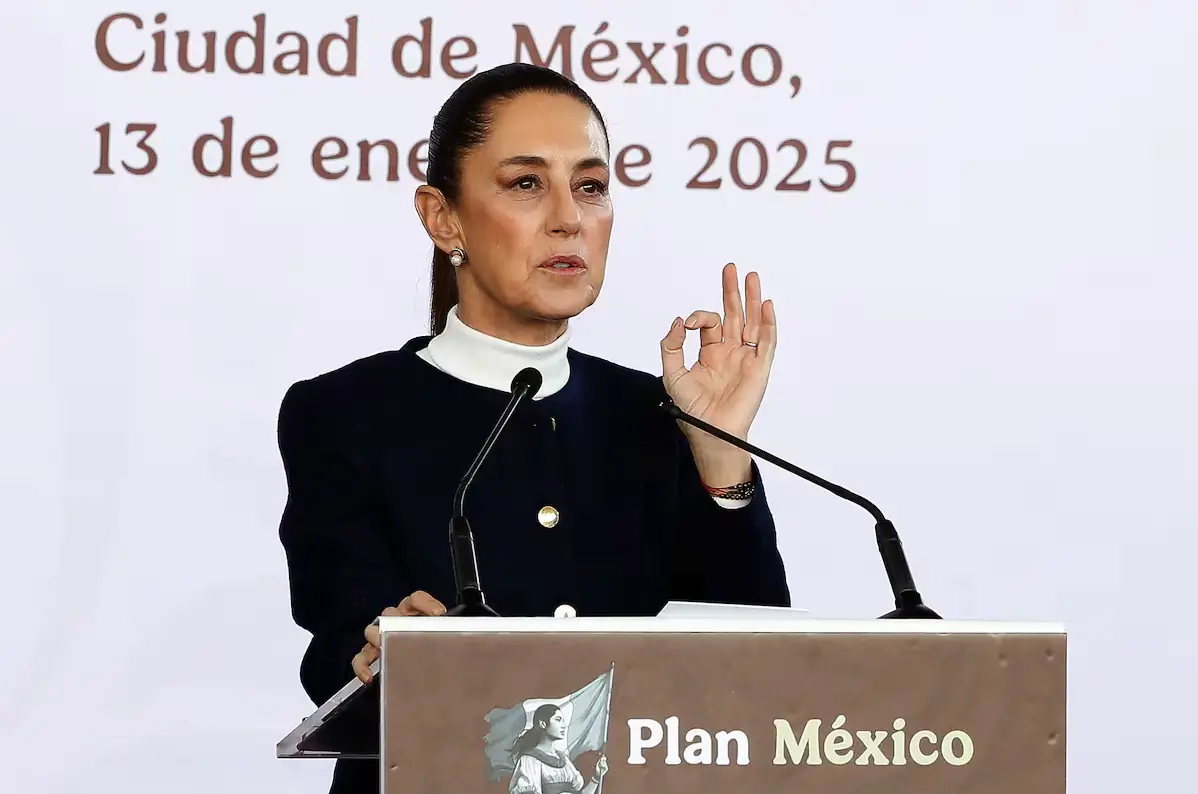The tension, though seemingly on pause, is not easing but rather intensifying. Trump’s threats persist, despite the Sheinbaum administration’s best efforts in managing migration and combating the production and distribution of fentanyl.
This titanic effort aimed to eliminate the risk of a 25% tariff on Mexican exports to the U.S. market. However, Trump, unsatisfied, mocked the attempt, saying it was done merely to “please him.”
As another month passes without the imposition of these tariffs—which violate the Mexico-United States-Canada Agreement (USMCA)—the question arises: where is Sheinbaum’s red line in this high-stakes obstacle course?
Conventionally, there would be three. First, migration: if Trump seeks to permanently reinstate the “Remain in Mexico” policy, effectively turning the Mexican government into a border enforcer. Second, tariffs or renewed pressure to renegotiate sections of the USMCA in favor of U.S. businesses at the expense of Mexican ones. And third, the most contentious issue: the classification of drug cartels as “terrorist organizations” to justify military intervention in Mexican territory.
This last scenario takes on a new dimension with the rumored list of 110 narco-politicians being discussed by influential journalists and media outlets. The outcome depends on how far Trump is willing to push and how much Sheinbaum is prepared to concede to political blackmail. Speaking in poker terms, a game Trump enjoys, he holds more aces—evidenced by what he extracted in February in exchange for prolonging the tariff uncertainty.
Imagine if that list of narco-politicians, complete with case files, were placed on the negotiation table. Sheinbaum would face a dilemma: defend them or confront them.
The problem is that, since the U.S. war on drugs is fixated on fentanyl, the scrutiny would be directed at the administration of Sheinbaum’s predecessor, López Obrador. Would it benefit Trump to implicate former presidents Felipe Calderón or Enrique Peña Nieto? No, the spotlight is on the current ruling group.
This could mean linking cabinet members, governors, mayors, senators, and deputies—triggering an internal and bilateral earthquake on at least three levels. First, the legitimacy crisis: some speculate that Sheinbaum remains subordinate to López Obrador. If, in a bid to safeguard her government, she allows U.S. justice to operate, it could fracture all three levels of governance. If she chooses instead to pay the political cost of defending those accused of narco-politics, it could spark an unprecedented diplomatic conflict between Mexico and the United States, with serious political and trade repercussions. Finally, there would be consequences for Mexico’s political stability, as divisions within Morena—already evident in legislative decisions—would deepen between Sheinbaum and López Obrador.
In this scenario, the opposition would seek to exploit the power vacuum, following the logic of “a troubled river benefits the fishermen.” Worse still, if Trump—unpredictable as ever—decides to escalate his attack all the way to former President López Obrador. That would put Sheinbaum in an even tighter bind, forcing her to decide whether to uphold the rule of law to protect her administration, as former President Lázaro Cárdenas did when he distanced himself from Plutarco Elías Calles, or to rally around nationalist rhetoric, invoking lines from the national anthem: “But if a foreign enemy should dare to profane your soil…”
She might attempt to revive the nationalist sentiment that has historically curbed foreign interference. However, this could also strengthen the U.S. argument that Mexico is governed by cartels and their political allies—an assertion increasingly difficult to refute given recent atrocities. In Jalisco, for example, families of the disappeared have uncovered makeshift crematoriums, along with remnants of shoes, clothing, and suitcases—chilling echoes of Auschwitz—revealing the horror unfolding in many regions of the country and the government’s impotence.
All of this brings to mind a crucial question posed by Latinobarómetro: would you be willing to sacrifice some freedoms in exchange for a government that guarantees security? The answer is almost always yes, reflecting Latin Americans’ fragile faith in representative democracy.
However, many political observers argue that Sheinbaum holds the key to freeing herself from AMLO’s shadow—a presence that constantly looms over her government, given his influence over the cabinet, legislative chambers, 24 governors, and the ruling party.
Sheinbaum now faces a defining choice: leverage Trump’s pressure to assert her independence and demonstrate that her government is different, allowing justice to take its course—or remain trapped in a spiral of distrust and internal conflicts, pushing forward in a dangerous gamble.
Ultimately, AMLO’s favorite maxim—one that Sheinbaum frequently echoes—seems more fitting than ever: “In politics, one must always choose between inconveniences.”
*Machine translation proofread by Ricardo Aceves.











